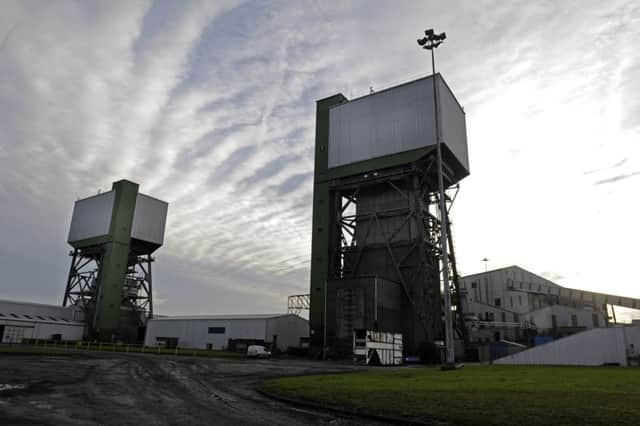Could our disused coal mines be harnessed for crop production?


The revolutionary method could yield 10 times more crops than conventional surface farming, it is claimed.
It would also create growing conditions immune to climate changes and unseasonal weather such as the long, dry spell of last summer, the researchers say.
Advertisement
Hide AdAdvertisement
Hide AdMore than 50 collieries in Yorkshire have been abandoned since the 1980s – a statistic which makes the county the perfect proving ground for the science, Prof Saffa Riffat, an expert in sustainable energy at Nottingham University, said.
Mine shafts and tunnels are seen as the perfect environment for growing lettuce, root vegetables, strawberries, herbs and other produce, as well as flowers, which would grow under LED and natural light, fed by fibre optic rods from the mine shaft.
The method is similar to “vertical farming” systems in which crops are grown in large glass towers on the surface – but the ready supply of available shafts and tunnels would make the underground solution more cost-effective, Prof Riffat told The Yorkshire Post.
Harvesting and irrigation would be done entirely from the surface, with no underground working involved. A system of pulleys would transport crops into tunnels and back to the top of the shaft after three to four weeks.
Advertisement
Hide AdAdvertisement
Hide AdA single mine shaft could yield 80-100 tons of crops in a year, said Prof Riffat, who is president of the World Society of Sustainable Energy Technology and who claims to have received “support and encouragement from ministers”.
He said: “The potential is huge. I see Yorkshire as the perfect place to bring old mine shafts back to life.
“Apart from the volume, you have the benefit of a controlled environment, with no chemicals, no pesticides, and no dependence on the seasons or on rainwater.”
He said the insulation from pollution had attracted the interest of officials in China, 20 per cent of whose available farming land is said to be contaminated, and where underground growing is seen as an economic way of producing crops on a large scale.
Advertisement
Hide AdAdvertisement
Hide Ad“The growing conditions are perfect,” Prof Riffat said. “The temperature is always steady, humidity is good, and cooling is not required.
“The idea we have is unique because we can control the light for each plant, with different colours to grow crops at different speeds.
“We’ve proved all of this in greenhouses. Now we want to drop the technology into a mine shaft.”
He added: “It would have been wonderful if I’d had the idea in the 1980s when 250,000 people were being made redundant. Even now, there are many industries where skills could be diverted to planting.”